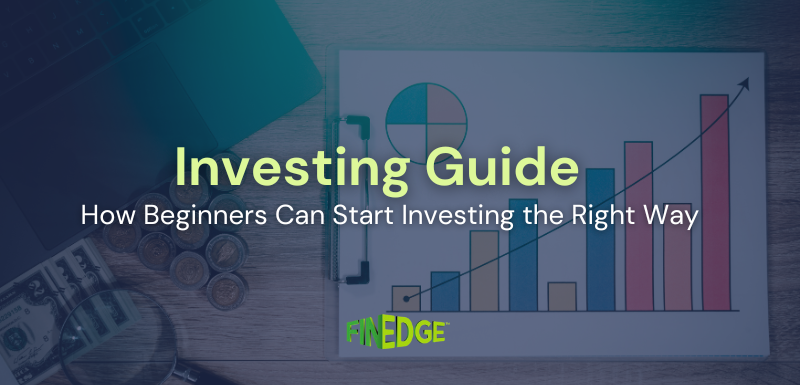Three personal finance lessons you wish you learned in school!

Most of us learned about algebra and the water cycle in school—but not how to budget, invest, or grow our wealth. Here are three personal finance lessons you probably wish you were taught early, and how learning them now can still change your life.
Why Are We Taught Everything Except Money?
Imagine how different your life might be if your school curriculum had a subject titled “Real-Life Money Skills.” No exams, just real-world lessons on saving, investing, and planning for life goals.
Unfortunately, the Indian education system doesn’t teach us much about managing our income, building wealth, or avoiding debt traps. That gap leaves us exposed to poor decisions, stress, and missed opportunities.
Here are three core personal finance lessons that, if taught early, could have set many of us on a different trajectory—and how you can start applying them now, no matter your age or income level.
1. Saving ≠ Investing: Know the Difference Early
In school, the idea of “saving” was often simplified to stashing away birthday money or opening a savings account. What we weren’t taught is that:
“Saving helps you survive. Investing helps you thrive.”
Why it matters:
Saving is critical for short-term needs and emergencies. But to beat inflation and grow wealth, you need to invest—preferably in goal-linked, inflation-beating vehicles like mutual funds through SIPs.
If you’d learned this in school:
You’d likely have started investing in your 20s, letting compounding work its magic. Even a ?5,000 monthly SIP started at age 25 can grow to over ?1 crore by the time you retire.
2. Every Rupee Has a Job: The Power of Budgeting
Most people don’t realise they leak wealth—not because they don’t earn enough, but because their spending isn’t aligned with their values or goals.
“If you don’t tell your money where to go, it’ll disappear before you know it.”
Why it matters:
Budgeting isn’t restrictive—it’s empowering. It helps you stay on track toward goals like retirement, children’s education, or even taking a sabbatical.
If you’d learned this in school:
You’d have developed a healthy relationship with spending and learned to distinguish between needs, wants, and long-term value.
Tip: Try the 50-30-20 rule:
-
50% for needs
-
30% for wants
-
20% for investments and savings
FinEdge Approach: Through our Dreams into Action (DiA) platform, we help clients create structured, behaviorally-aligned investment plans that mirror their real lives—not just their income levels.
3. Delayed Gratification = Long-Term Freedom
What if you were taught in school that saying no to impulse spending today can buy you freedom tomorrow?
The foundation of wealth isn’t how much you earn. It’s how much you keep—and grow.
Why it matters:
Every financial goal requires trade-offs. Choosing to spend ?50,000 on the latest phone instead of starting a SIP might feel small—but over time, these decisions shape your financial reality.
If you’d learned this in school:
You’d understand that small sacrifices today (like skipping that EMI-laden gadget) can mean hitting your financial goals faster, without stress.
FAQs
Q1. Why don’t schools in India teach personal finance?
The traditional curriculum focuses on academic subjects, with little emphasis on practical life skills like budgeting or investing. This is slowly changing, but still limited.
Q2. Can I start investing if I don’t have a big income?
Absolutely. Even ?500 SIPs can create wealth over time when linked to clear goals. The idea is to start small and step up your monthly investments at regular intervals
Q3. What’s the best age to start financial planning?
The sooner, the better. But any time is a good time—as long as you’re intentional and goal-oriented.
Q4. I’ve made financial mistakes—can I still recover?
Of course. With the right guidance and a plan aligned to your goals, you can still build long-term financial security.
Your Investing Experts
Relevant Articles
Beginner Investing Guide: How to Start Investing the Right Way
Investing for beginners can feel both exciting and overwhelming. With constant news about markets, social media opinions, and stories of quick gains, first-time investors often struggle to separate what truly matters from what is simply noise.
How to Save More From Everyday Expenses and Invest More Consistently
Spending smarter, timing purchases better, and being intentional with recurring expenses can create a steady surplus that can be channelled into long-term investments.
Rupee Falling? How to Protect and Grow Your Investments
When the rupee weakens, it often creates anxiety for investors. But currency depreciation is not an anomaly; it is a recurring phase in every long-term economic cycle. The real question is not whether the rupee will fall, but how investors should respond to it without derailing their long-term financial goals.
.png)


